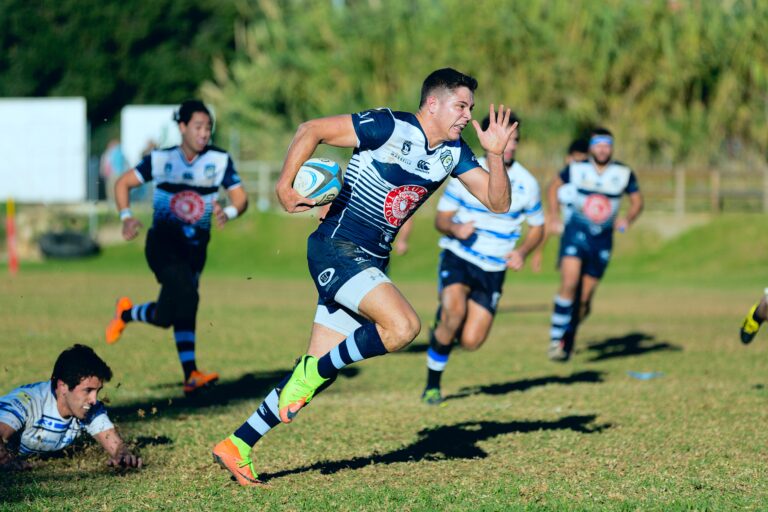Effective Responses for Job Interviews
Mastering Weaknesses: Crafting Effective Responses for Job Interviews
Are you ready to tackle the dreaded question about weaknesses in job interviews? Don’t fret, we’ve got you covered.
Mastering weaknesses is all about crafting effective responses that showcase your growth, teamwork, and commitment to personal development. By avoiding the common pitfall of denying weaknesses and instead focusing on skills still in development, you can impress hiring managers with your self-awareness and adaptability.
In this article, we’ll guide you through the process of selecting the right weaknesses and provide expert-recommended answers to help you ace your next interview. Get ready to conquer your weaknesses and land that dream job!
Understanding the Purpose of the “Weaknesses” Question
When crafting your responses for job interviews, it’s important to understand the purpose behind the ‘weaknesses’ question. Interviewers ask about weaknesses to gauge your self-awareness and ability to address potential concerns. They want to see if you can identify areas for improvement and if you’re actively working on them.
By understanding interviewers‘ expectations, you can provide a thoughtful and effective response. It’s crucial to avoid saying that you don’t have any weaknesses, as this can come across as insincere. Instead, choose a skill you’re actively working on and highlight your commitment to continuous improvement. Show that you’re willing to learn and grow, and choose a weakness that won’t significantly affect the job you’re applying for.
Utilizing Recommended Answers From Experts
To make a strong impression in your job interview, try utilizing the recommended answers provided by experts. When it comes to identifying strengths and weaknesses, providing examples is key.
Here are some tips to help you craft effective responses:
- Practice three answers recommended by NerdWallet to showcase your self-awareness and growth mindset.
- Show how you overcame a challenge to highlight your problem-solving skills.
- Share an example of teamwork and working well with management to demonstrate your ability to collaborate.
- Avoid saying ‘I don’t have any weaknesses’ as it can come across as insincere.
- Remember, a well thought-out response can win you serious points in the hiring process.
Highlighting Personal Growth and Overcoming Challenges
You can showcase personal growth and highlight your ability to overcome challenges by sharing examples of how you’ve developed and learned from past experiences. When discussing your weaknesses in a job interview, it’s essential to frame them in a positive light.
Highlighting personal achievements and showcasing problem-solving skills can demonstrate your ability to learn and grow. For example, you can talk about a time when you faced a difficult task or encountered a challenge in a previous role. Explain how you approached the situation, the steps you took to overcome it, and the valuable lessons you learned from the experience.Emphasizing Teamwork and Collaboration Skills
Highlight your ability to work well with others and contribute to a team by sharing examples of successful collaboration and teamwork experiences. Fostering collaboration and building strong teams are essential skills in the workplace.
When discussing your teamwork experiences, emphasize how you effectively communicated and collaborated with others to achieve common goals. Share specific examples where you demonstrated your ability to work cooperatively, resolve conflicts, and contribute to the success of the team.
Highlight instances where you took on a leadership role, facilitated open communication, and fostered a supportive and inclusive environment. By showcasing your past experiences, you demonstrate your understanding of the importance of teamwork and collaboration in achieving organizational objectives.Employers value individuals who can work effectively with others, so make sure to showcase your ability to contribute to a team’s success.
Avoiding the Common Pitfall of Denying Weaknesses
Don’t make the mistake of denying your weaknesses during a job interview. It’s tempting to want to present yourself as flawless and capable, but denying vulnerabilities can actually work against you.
Employers value self-awareness and honesty. Acknowledging limitations shows that you are willing to learn and grow, and that you have the humility to recognize areas where you can improve.
When asked about weaknesses, it’s important to have a well-thought-out response. Highlight a skill you’re actively working on or mention a specific challenge you have overcome. It’s crucial to choose a weakness that won’t significantly affect the job you’re applying for.
Express your eagerness to learn from supervisors and outline your future plans for personal development. By acknowledging your limitations, you demonstrate a commitment to self-improvement and a willingness to grow professionally.
Leveraging Weaknesses as Opportunities for ImprovementIdentify weaknesses that can be transformed into opportunities for growth and improvement.
When it comes to job interviews, utilizing constructive criticism and turning weaknesses into strengths is crucial. Instead of denying your weaknesses, embrace them as chances to learn and develop. Show the interviewer that you are committed to self-improvement by discussing a skill you are actively working on.
Whether it’s developing industry knowledge or improving your Excel skills, highlight your dedication to continuous growth. However, it’s important to choose a weakness that won’t significantly affect the job you are applying for. Avoid mentioning weaknesses that are directly related to the job requirements. Instead, express eagerness to learn from supervisors and discuss your future plans for personal development.Focusing on Skills Still in Development
When it comes to discussing skills still in development during a job interview, it’s important to showcase your commitment to continuous growth. Here are some strategies for self-improvement and balancing strengths and weaknesses:- Practice three answers recommended by NerdWallet to address weaknesses effectively.
- Choose a skill you’re actively working on and mention your commitment to continuous improvement.
- Highlight a skill you haven’t mastered, such as developing industry knowledge or improving Excel skills.
- Avoid using weaknesses that are strengths in disguise. By focusing on skills still in development, you demonstrate a willingness to learn new things and a dedication to personal growth.
- It’s crucial to choose a weakness that won’t significantly affect the job and express your eagerness to learn from supervisors. This showcases self-awareness and a solid commitment to personal development.
- Recognizing the Importance of Adaptability and Learning You sIt would be best if you cased your adaptability and willingness to learn to impress potential employers during job interviews. Adapting to change and embracing continuous learning are essential skills in today’s rapidly evolving workplace. Employers value candidates who can navigate uncertainties and thrive in dynamic environments.
- Highlight instances where you successfully adapted to new technologies, processes, or team dynamics. Discuss how you proactively sought opportunities to learn and grow through online courses, workshops, or mentorship programs. Emphasize your ability to grasp new concepts and apply them effectively quickly.Empland
oyers want to see that you are open to change and actively seek ways to enhance your skills and knowledge. Demonstrating your adaptability and commitment to continuous learning will make you stand out as a candidate who is ready to tackle any challenges that come your way.Selecting Weaknesses With Minimal Impact on the Job
To minimize the impact on the job, choose a weakness that won’t hinder your ability to perform effectively in the new position.When selecting weaknesses to discuss in a job interview, it’s essential to consider their potential impact on your performance. Opt for non-essential weaknesses that won’t significantly hinder your ability to excel. This approach allows you to demonstrate self-awareness and a commitment to personal development without raising concerns about your suitability for the position.Utilizing constructive feedback can be a valuable strategy in identifying areas for improvement. By acknowledging and addressing these weaknesses, you can show interviewers that you are proactive in your professional growth and willing to learn from supervisors and mentors.Demonstrating Self-Awareness and Commitment to Growth
Now that you’ve learned how to select weaknesses that have minimal impact on the job, it’s time to focus on demonstrating self-awareness and commitment to growth. This is an essential aspect of crafting effective responses for job interviews.
Employers value candidates who can acknowledge their limitations and are willing to improve. When discussing weaknesses, embracing constructive criticism and highlighting the steps you’ve taken to overcome them is important. This could include seeking mentor feedbackor taking relevant courses to enhance your skills.







